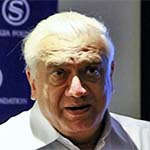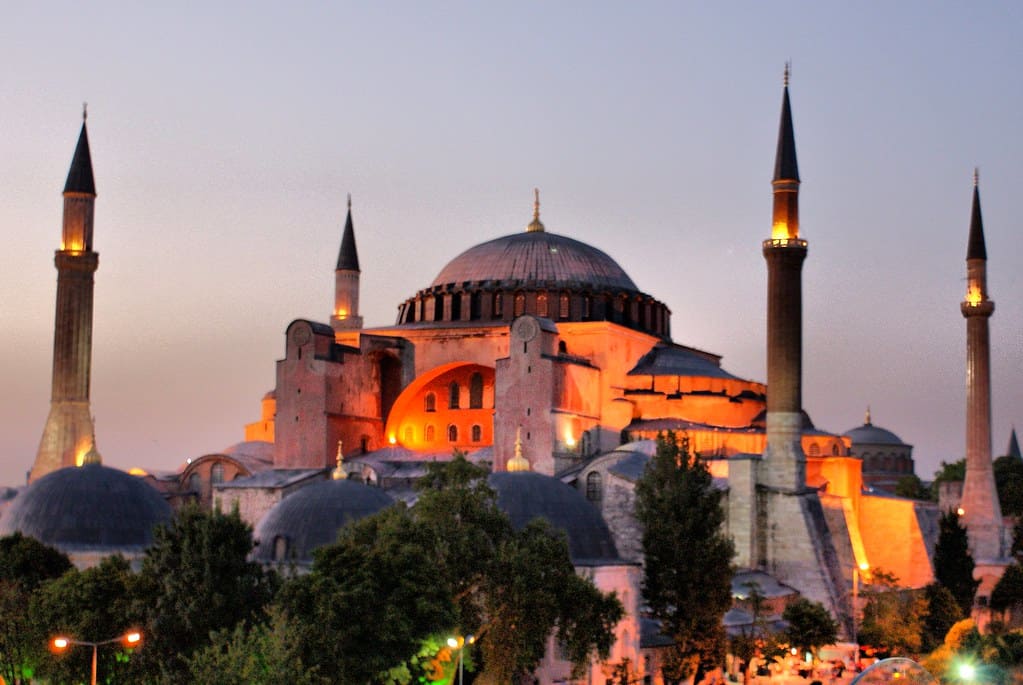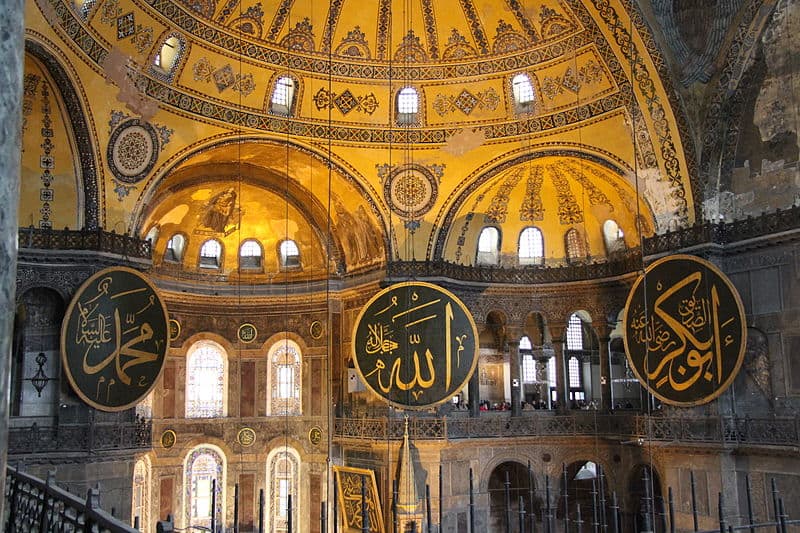
On July 10, Turkish President Recep Tayyip Erdogan issued a decree declaring that the Hagia Sophia museum in Istanbul would once again become a mosque. This decree overturned the 1934 decision of the Turkish Cabinet to convert the mosque into a museum, a move that signalled Turkey’s new image as a modern, secular state.
In this battle of symbols of identity, Erdogan has indicated that Turkey’s future will be founded on its legacy of Ottoman glory, rather than Kemal Ataturk’s vision of Westernized secularism.

As long ago as 1994, while mayor of Istanbul, Erdogan told a Kuwaiti newspaper of his dream to restore Hagia Sophia to its former role as a mosque. This echoed earlier views of some Turkish intellectuals who considered turning the historic landmark into a museum to be a rejection of Turkey’s heritage and an act of subservience to Western powers.
Erdogan’s political opponents, including former President Abdullah Gul and former Prime Minister Ahmet Davutoglu, sent congratulatory messages after the announcement, while another opposition figure insisted that the status of Hagia Sophia is a matter of Turkish sovereignty. Nobel Prize-winning author Orhan Pamuk, however, denounced the decision as a renunciation of the country’s secular identity.
Western criticisms have been sharp. The Greek culture minister described the decision as a “direct challenge to the civilized world.” Russia said it represents “a threat to Christian civilization,” while France called for Hagia Sophia to remain a tourist attraction open to all communities. Prominent Christians expressed concern that it will lead to greater polarization among Muslims and Christians.
Erdogan’s high-profile celebration of Turkey’s Ottoman heritage has manifested in a number of ways across the Middle East and North Africa in the past year, in many of the places where the Ottomans wielded power during their glory days. This most recent projection of Turkish power is more than just political and diplomatic — it is accompanied by an overt display of military power.
In Syria, Ankara has conducted several military operations and has more than 10,000 troops in the Idlib region. It is also confronting the Kurds in Syria and Iraq. Troops were sent into northeast Syria as part of Turkish plans to establish a “security corridor” along its border that will encompass Kurdish territory from Afrin in Syria to the Qandil mountains in Iraq.
In June, Ankara launched massive assaults on Turkish Kurds from the Kurdistan Workers’ Party (PKK), who have bases in northern Iraq from which they attack Turkish targets. In the past month, troops have hit 700 PKK targets and set up 37 bases in northern Iraq, in open violation of Iraqi sovereignty.
In November last year, Turkey intervened in the Libyan Civil War, deploying armed drones and short-range missiles, backed by military advisers and militants from the cadres it has armed and trained in northern Syria. Ankara’s actions, in support of the Government of National Accord (GNA) in Tripoli, have halted the progress of Gen. Khalifa Haftar, leader of the Libyan National Army.
The Turks believe their position in Libya is so strong that Foreign Minister Mevlut Cavusoglu rejected a proposal for a cease-fire and insisted that the city of Sirte and Al-Jufra airbase will have to come under GNA control before this can even be considered.
Turkey’s accord with the GNA in November included a maritime agreement in which they defined for themselves an exclusive economic zone in the Eastern Mediterranean. This encroaches on areas claimed by Greece and Cyprus for oil and gas exploration. Turkish survey vessels have moved into the disputed locations, accompanied by navy vessels. The move is an overt projection of Turkey’s economic and naval interests in the Mediterranean, reminiscent of Ottoman forays centuries ago.
Turkish sources have also highlighted the importance attached by Erdogan to the enhancement of energy, economic and defense ties with other North African states, including Algeria, Morocco and Tunisia, in efforts to strengthen Turkey’s presence in these former Ottoman territories and, from there, reach out to the rest of Africa.
Turkey has maintained a close relationship with the US, even while it cooperated with Russia and Iran to address regional challenges. Ankara now needs to end its strategic ambivalence.
As a result of the global COVID-19 pandemic, Turkey’s economic growth could shrink by 5 percent this year and unemployment could reach 17 percent. Erdogan brushed aside these figures and said that in the next 3 years Turkey will become “an unstoppable power” in the region and emerge as “one of the outstanding countries in the world.”

From the Turkish perspective, the conversion of the Hagia Sophia museum into a mosque signals the end of 300 years of Western hegemony, marked by the subordination of Turkey to Western interests. Erdogan is asserting that Turkey will actively seek a new world order in which it has influence and authority commensurate with its civilizational status and modern-day achievements.
The next steps are not clear, however. Despite a number of differences, Turkey has maintained a close relationship with the US, even while it cooperated with Russia and Iran to address regional challenges. Ankara now needs to end its strategic ambivalence.
Talmiz Ahmad is an author and former Indian ambassador to Saudi Arabia, Oman and the UAE. He holds the Ram Sathe Chair for International Studies at the Symbiosis International University in Pune.

